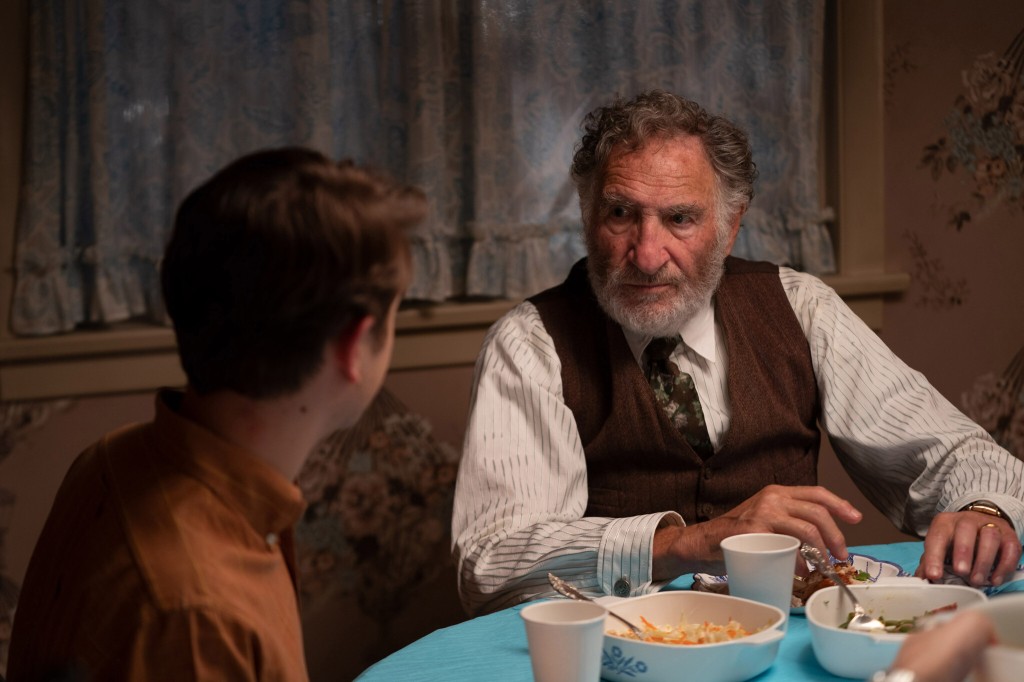
In case of any confusion, Guillermo del Toro’s Pinocchio is not the Pinocchio movie with Tom Hanks. Which should be obvious, as the idea of those two working together would result in a movie where Hellboy does dishes for two hours.
Del Toro’s Pinocchio also differentiates itself from the other one in that it is intentionally weird, and as in the director’s most memorable films, draws something deeply moving from his fascinating visual gestures.
For a story about a puppet boy, stop-motion animation makes perfect sense, and del Toro leans into the concept of ‘wood brought to life’ by making nearly everything along with Pinocchio feel as if it were carved of wood and then given softness and fluidity. The effect is signature del Toro in that it is beautifully rendered with a creepy edge. For as expressive and buoyant as his Pinocchio is, you never lose the sense that those sharp, flailing limbs are going to take someone’s eye out eventually.
Like many, I know the Pinocchio fairy tale from Disney. It was a very fraught parable for the timid mousehouse to take on, so del Toro goes where Disney couldn’t. He seems to have dug up (or added) some Pinocchio story details to satisfy his more advanced taste for the strange and wonderful, which is why we go to his films. Here’s hoping he’ll do the original, dark version of Cinderella next, where one of the step-sisters cuts off her toes to fit into the glass slipper.
But back to what he’s done with Pinocchio. For instance, did you know: Sebastian (Jiminy) Cricket wrote books inside a tiny office in Pinocchio’s hollow ‘trunk’; Pinocchio could eat and drink without it spilling out through his cracks; Mussolini went to see Pinocchio perform; the Blue Fairy was related to the guy with eyeballs in his hands from Pan’s Labyrinth; the whale was the love child of an angler fish and an elephant; Cate Blanchett can make monkey noises; and – most of all – that Pinocchio actually dies several times during the story? And is brought back to life by Where-there-is-weird-there-is-Tilda Swinton?
Maybe Del Toro felt the need to pay some homage to Disney’s presentation of the story by making his version a musical too, but no one’s wishing upon a star here. The numbers are mostly dark (Ciao Papa, The Lost Lamented, Fatherland March) and are mercifully brief.
The most notable – and wonderful – departure this Pinocchio makes from the story most of us know is that Pinocchio, while he still seeks the approval of his father, does not spend the movie wishing he were a real boy. He revels in his oddness, and gets Geppetto and others to accept and embrace it. He lets his freak flag fly. Here, becoming ‘real’ like other boys means Pinocchio must break the rules of his very nature, and he does so only in desperation to save his father from death. Del Toro depicts this with a surprising and compassionate twist: he keeps his Pinocchio in wooden form even after he is made real. The reward Pinocchio gets for learning what it means to be human is not on the surface. It’s on the inside.
Disney would claim this was the message in their Pinocchio, but it rings hollow when their happy ending calls for Pinocchio to look like everyone else. Del Toro has always made otherness something to embrace, not change or overcome, and his Pinocchio is a classic like you’ve never felt it before.
Predicted Oscar nominations: 3
Animated Feature, Adapted Screenplay, Song




